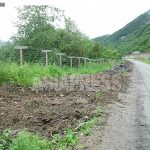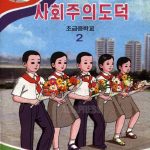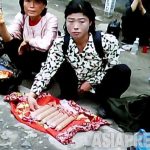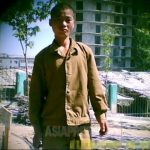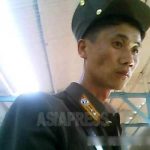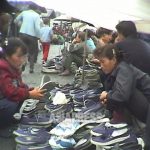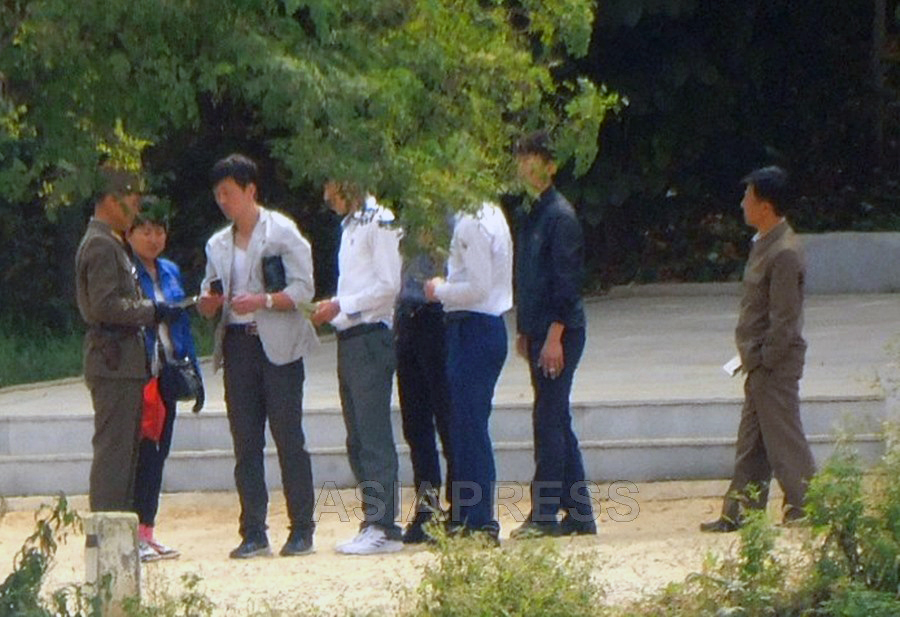
<Lighting Up N. Korea's Four Dark Years> (1) Almost the Only Escape Route -The New Generation ‘Donju’ Who Crossed the Sea Tell About COVID-19, Chaos, and Social Change
Based on investigations by ASIAPRESS reporting partners and testimonies from North Korean defectors, the most severe period throughout the pandemic was the spring of 2023. During this time, a humanitarian crisis occurred, leading to extreme social instability and confusion. (JEON Sung-jun)
◆ Background of the humanitarian crisis
Kim Myung-ok says what made people's lives even more difficult after the coronavirus swept through the country was the regime's crackdown on private economic activity, which intensified after the nationwide lockdown.
"They prevented people from doing business. Those who could sell some existing goods were a little better off, but for those without even that, they would pick potatoes during the potato season, work for others during the agricultural season, and receive a little in return. If they could eat two meals a day, they were considered relatively well off. Many people couldn't even do that and went hungry."
At the same time, the control over residents through jobs intensified. This is what one reporting partner told ASIAPRESS about the situation in the northern region in November 2022:
"Even if you go to work and work to the bone, they don't give you anything (salary or rations) and just continue to enforce the rules. You don't know how hard it is to think about what to eat every night and every morning. Not being able to defect is the biggest regret of my life."
The aftereffects of the hardships accumulated during the pandemic began to intensify, especially as the spring lean season of 2023 approached. News from ASIAPRESS's reporting partners in the northern region included many serious reports of what could be considered a humanitarian crisis.
"In our neighborhood alone, four people died in April, and there are two who seem to be dying soon. No one has the means to get food on their own." (Musan County, North Hamgyong Province, May 2023)
"As the barley hump (spring food shortage) set in, the number of people suffering from malnutrition increased. In May, four people died in our neighborhood unit. It was practically starvation, but it was processed as death by disease. The number of homeless people has risen sharply. (Hyesan, Yanggang Province, May 2023)
"The number of empty houses is increasing. The authorities say they'll give these houses to the homeless. The number of people committing suicide (unable to bear the hardship) is increasing." (Hyesan, Yanggang Province, June 2023)
Although there had been occasional reports of starvation deaths before, this was the first time that multiple starvation deaths had been reported at the same time.
This is not just a story of the northern region.
Kim Chung-yeol said in the interview with ASIAPRESS, "When I left in 2023, the people around me were really struggling. Even though the area we lived in was quite prosperous, there were people who committed suicide due to hardship."
◆ Military surrounds villages and searches even handbags, excessive food requisition
Kim Chung-yeol says the reason the situation worsened in the spring of 2023 was because the previous fall, the authorities' so-called "encirclement operation" left ordinary residents without enough winter food. According to Kim, in the fall of 2022, the Kim Jong-un regime mobilized the military to surround rural areas and implement a policy of drying up food supplies.
"In the fall of '22, the state cracked down on the grain issue to an unprecedented degree. The 5th Corps came to our area, and soldiers went out into the countryside to harvest directly and guard every alleyway to prevent food from being stolen. They even searched women's handbags. I was living quite well, but that was the first time I had been searched like that."
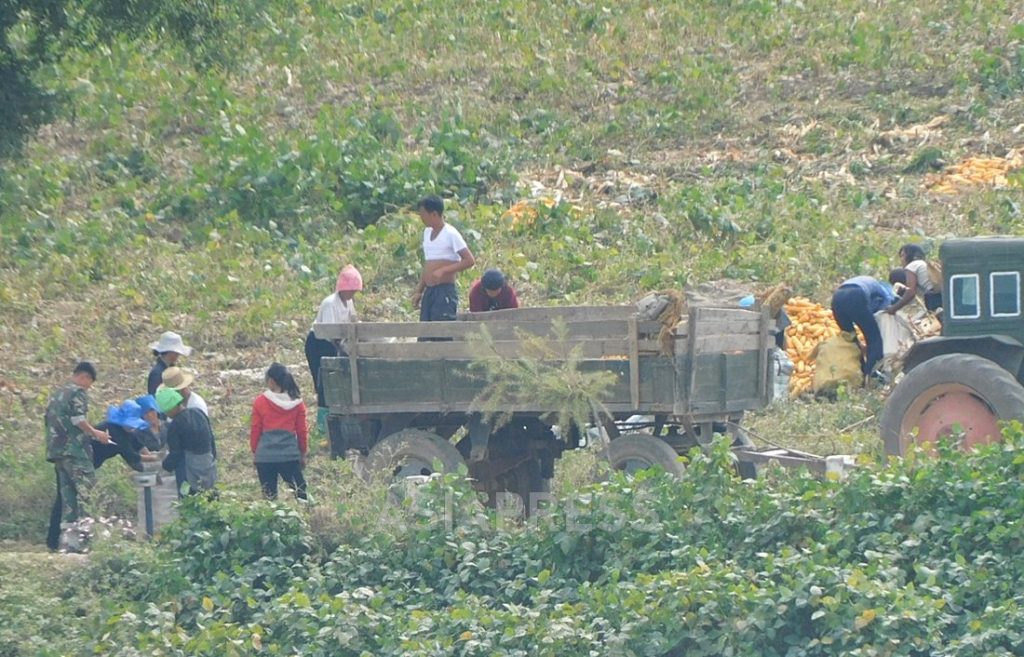
Kim then explained the reason:
"Why was it so severe in the fall of 2022? When the blockade continued in '20 and '21, the state released strategic supplies (war food). They said they were tightening things up to replenish them."
◆ Statistics can't show starvation deaths, but...
It's clear that during the pandemic, especially in the spring of 2023, there were a significant number of starvation deaths among North Koreans. However, no official statistics from the authorities show any starvation deaths.
A clue to what really happened can be found in the words of Kim Chung-yeol:
"There is a question of how to define the concept of someone starving to death. If someone dies and you go to their house and there's actually some food left, they don't consider it a starvation death. For example, if I had the ability to secure 10 kg of food per month, but because of COVID or other factors, I can only get about 5 kg, I reduce consumption. You save bit by bit. Then you can't remember the last time you ate meat, and as you gradually become physically weak, your immunity drops. In that state, even a small fall or a mild cold or diarrhea can easily lead to death. In fact, there isn't a single person in North Korea who has died of starvation. Almost everyone is treated as dying of an illness or an accident."
Kim Myung-ok made similar remarks:
"More people died from the aftermath of COVID than from COVID itself. Not many people died during COVID. Even if they got COVID, they recovered quickly. But the problem is after recovery. The fever doesn't go down, it's a low-grade fever. Many people around us died of tuberculosis or cancer because their immunity dropped. They wasted away. There was a saying that this year (2023) is a year of many empty houses. It means that many people died."
Kang Gyu-rin says, "During COVID, some people recovered without taking medicine, but it seems that they couldn't withstand the after-effects. They had to recover from the effects, but people couldn't eat properly. So many people got sick and gradually died."
If we expand the concept of victims in this way, the number of starvation deaths during the pandemic would increase significantly.
◆ Every day is a shock, various crimes rampant, police carry weapons at all times
Kang Gyu-rin remembers a moment when this thought suddenly came to her:
"Suddenly it felt like it was becoming real. Life is very hard, you know. At that time, you live according to how wise you are. If you live naively and do what you're told, you'll end up starving. That was the situation."
Reflecting on the pandemic period, Kim Chung-yeol said, "It was a really painful time. It felt like, "Can we really live like this for long?"
As life became more difficult during the ongoing pandemic, various violent crimes such as theft, robbery, and murder became rampant.
In February 2023, North Korean authorities even distributed a proclamation targeting various crimes in the name of the national police agency.
Kim Chung-yeol, who says the COVID period was the worst of his more than 30 years in North Korea:
"Every day, every single day, we heard shocking news, so it was the most terrifying period. Our area (Hwanghae Province) was relatively prosperous, so there wasn't much crime. But there were so many murders at the time (it was frightening)."
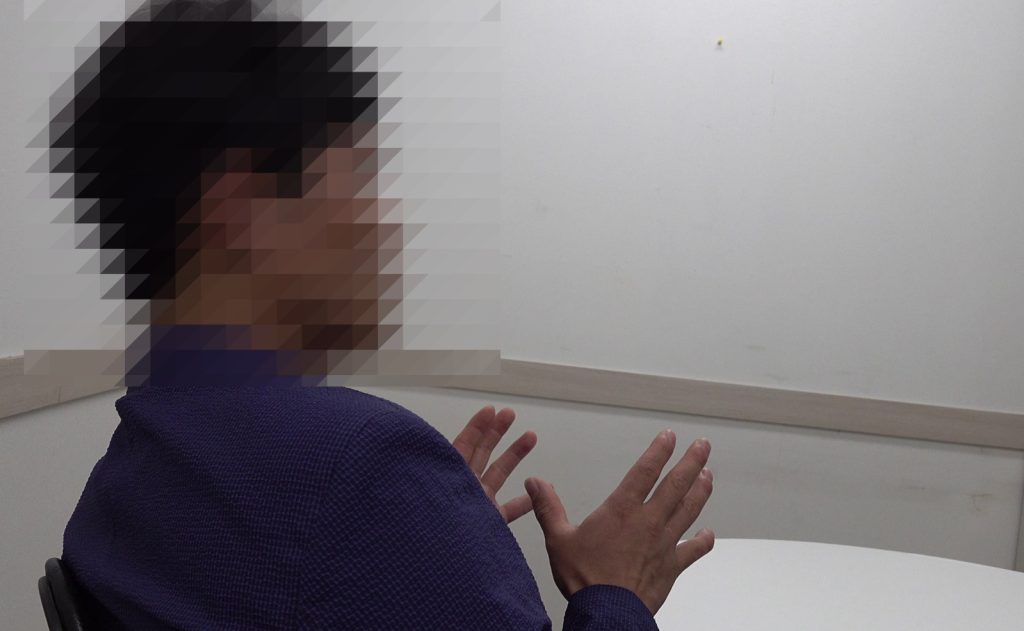
Kim shuddered at the incident in which his family's neighbors were brutally murdered by robbers.
"What was more surprising was that the criminals left so many clues, and even though the children described their appearance in detail, they couldn't catch them at all. When I asked them why they couldn't catch them, they said that the state had ordered an investigation, but they had to investigate at their own expense without being able to earn any money in the meantime, so how could that work? Even police officers were often targeted, so at the end of 2021, an order was issued for them to carry guns at all times."
So far in this series, ASIAPRESS has explored the impact and aftermath of the pandemic on the people of North Korea. The pandemic has inflicted tremendous suffering on the North Korean people. However, it's important to make it clear that the tragedy that the COVID-19 pandemic brought to the people of North Korea was man-made.
Although it began as an unavoidable natural disaster, the state's excessive lockdown, irresponsible policy enforcement, ruthless market control and oppression of its own people was a disaster that went far beyond the natural disaster.
In a two-part series, ASIAPRESS will examine how the pandemic has affected the North Korean regime. (To 7>>)
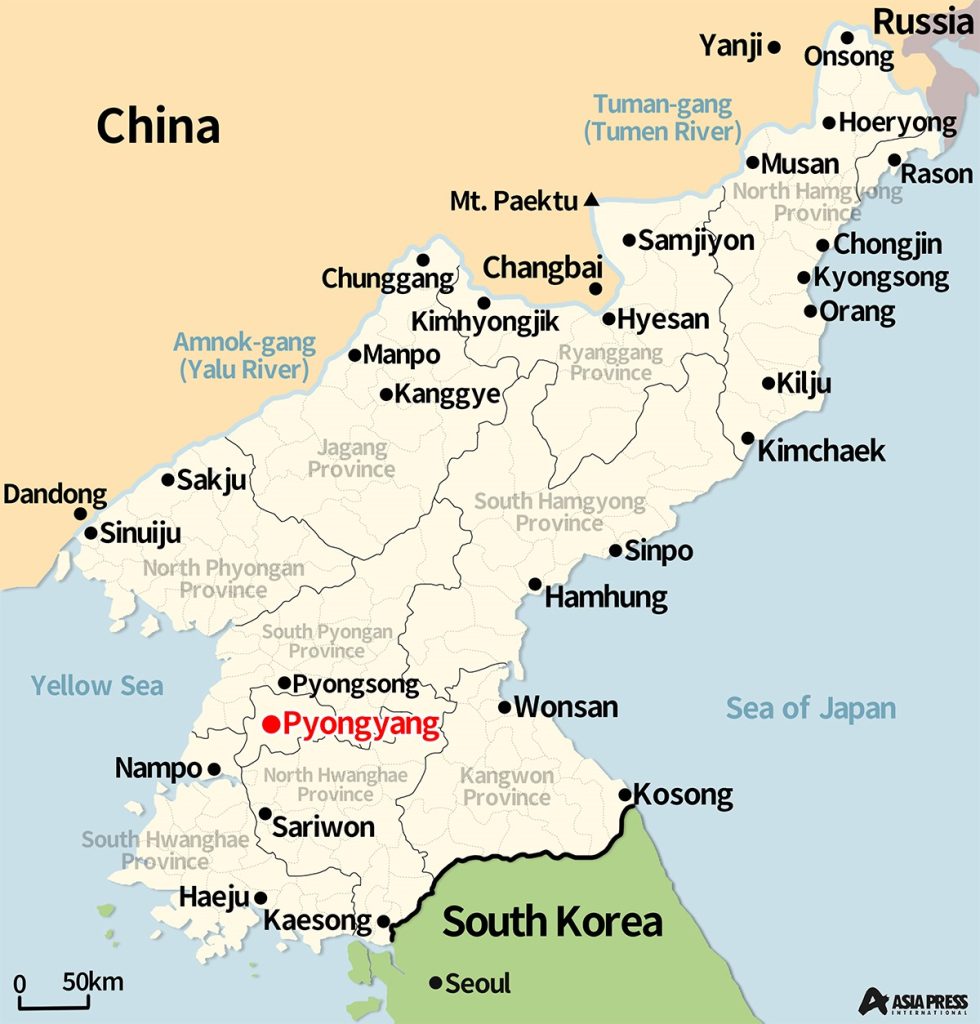
- <Lighting Up N. Korea's Four Dark Years> (10) The Capitalist Ghost Under the Socialist Roof (2) "Leave the Quota to Me" - Are Wealthy Individuals the Driving Force of Rural Economy?
- <Lighting Up N. Korea's Four Dark Years> (9) The Capitalist Ghost Under the Socialist Roof (1): From Private Ship Owners to 'Unions' Negotiating with the Central Party... Ship Owners Pushing Boundaries
- <Lighting Up N. Korea's Four Dark Years> (8) Pandemic-Induced Financial Crisis and the Regime's Response: 'Tax-Free' North Korea Imposes New Levies, Including 'Fireplace Tax'
- <Lighting Up N. Korea's Four Dark Years> (7) North Korea’s Pandemic Power Play: State Seizes Market Control as “Donju” Crumble
- <Lighting Up N. Korea's Four Dark Years> (5) What Happened During COVID... "Drink Willow Branch Brew" - Misguided Quarantine Policies Only Led to Residents' Deaths
- <Lighting Up N. Korea's Dark Four Years> (4) “The People Are at the End of Their Tether”: A Country that Wants to Control Markets and Rule by Calories
- <Lighting Up N. Korea's Dark Four Years> (3) The Second Link in the Tragedy – Ruthless Quarantine Policy, "The State is Scarier than the Virus"
- <Lighting Up N. Korea's Four Dark Years> (2) The First Link in a Tragic Chain - Border Closure... "Corona Was a Nightmare, It Was Difficult to Buy Even a Single Needle"
- <Lighting Up N. Korea's Four Dark Years> (1) Almost the Only Escape Route -The New Generation ‘Donju’ Who Crossed the Sea Tell About COVID-19, Chaos, and Social Change
